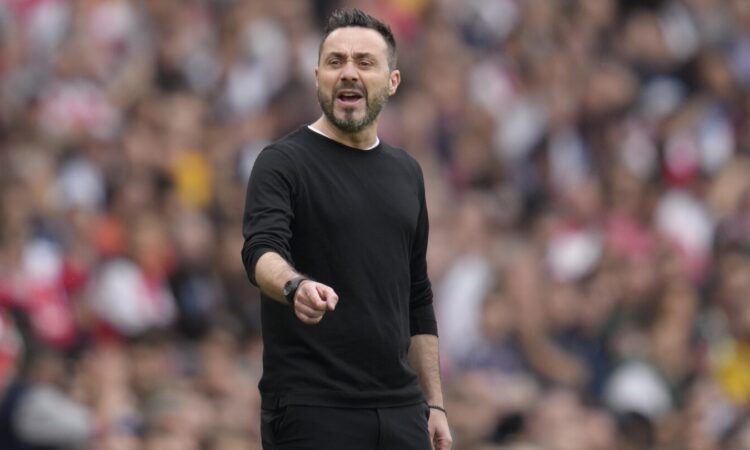UEFA clears Brighton, Toulouse and Aston Villa for European entry but limits future transfer deals

GENEVA (AP) — Under threat of losing European competition places, Brighton, Toulouse and Aston Villa were cleared Friday by UEFA to play next season despite their owners having ties to other clubs that qualified, including AC Milan.
However, UEFA also prohibited the partner clubs — Brighton and Union Saint-Gilloise; Toulouse and Milan; Villa and Vitória Guimarães — from exchanging players via sales or loans through the end of the summer transfer window next year.
UEFA drafted rules on multi-club ownership 25 years ago to protect the integrity of its competitions when the teams could be drawn to play each other during the season. UEFA-appointed investigators evaluated three cases in recent weeks.
UEFA noted the “significant changes by the clubs and their related investors” to comply with the rules that “substantially restrict the investors’ influence and decision-making power over more than one club.”
“The clubs will not transfer players to each other, whether permanently or on loan, directly or indirectly, until September 2024,” UEFA said in a statement.
That would prevent the kind of loan move that Japan forward Kaoru Mitoma made between Brighton and Union for the 2021-22 season.
Also, UEFA ruled that “the clubs will not enter into any kind of cooperation, joint technical or commercial agreements. The clubs will not use any joint scouting or player database.”
Brighton can now make its European debut in the Europa League in September after persuading UEFA’s club finance panel that its owner Tony Bloom does not also have decisive influence at Union. The Belgian club is in the Europa League qualifying playoffs.
Union president Alex Muzio said in a statement “it became clear that certain changes needed to be made to the ownership structure” to comply with UEFA regulations. As a result, Muzio said he increased his investment to become Union’s majority owner, with Bloom’s ownership reduced to a minority stake.
French Cup winner Toulouse goes into the Europa League despite its ties to American investment firm RedBird Capital Partners, which also owns Champions League team Milan.
Aston Villa’s American owners reduced their stake last week in Portuguese club Vitória and both teams will now enter qualifying rounds for the third-tier Europa Conference League.
In multi-club ownership cases, UEFA rules give priority to the team that placed higher in its domestic league last season. The lower-ranked team risked being removed.
Brighton was in jeopardy because it placed a club-best sixth in the Premier League while Union was third in the Belgian league. Aston Villa was seventh in England, Vitória was fifth in Portugal.
The multi-club rules were most famously tested in 2017 by Leipzig and Salzburg which UEFA let enter the Champions League together despite both being part of the Red Bull group. In that case, no transfer limits were imposed and the clubs have continued to trade often between each other.
The UEFA ruling on Friday ended the hopes of Tottenham, eighth in the Premier League, being upgraded to European competition.
The threat posed by multi-club ownership to integrity in soccer and the transfer market was flagged by UEFA researchers this year in their annual analysis of the industry. They identified more than 180 clubs worldwide in a multi-club structure and a trend driven by American investors.
The biggest project is Abu Dhabi-controlled City Football Group which includes Manchester City among five European teams in a 13-club global project. The new Champions League winner is the only one of those teams which qualifies for UEFA competitions.
Brighton’s entry into the Europa League could be the most lucrative among the three clubs who were at risk.
Brighton should earn at least 15 million euros ($16 million) in UEFA prize money with more on offer from win bonuses and advancing through the knockout rounds. In the 2021-22 season, Europa League winner Eintracht Frankfurt got 38 million euros ($41 million) from UEFA.
Playing and winning in European competitions is also seen as key to developing a club’s ambitions, attracting players and earning UEFA ranking points that ensure more prize money and better seeding in future seasons.
Villa, the 1982 European Cup winner, has not qualified for any UEFA competition for 13 years and not played in any group stage since 2008. Toulouse last played in the 2009-10 season.
___
AP soccer: https://apnews.com/hub/soccer and https://twitter.com/AP_Sports






